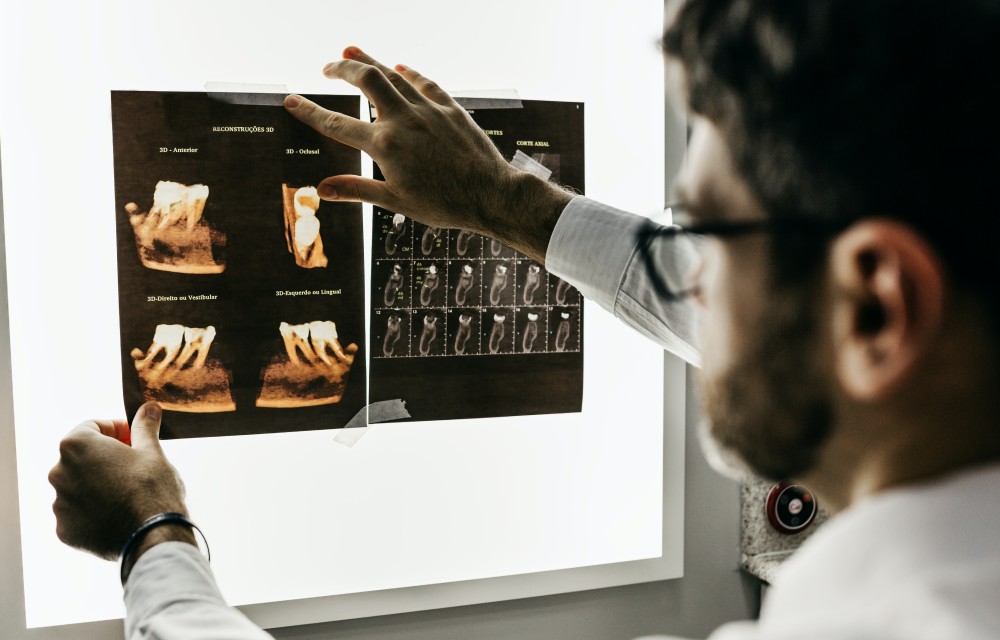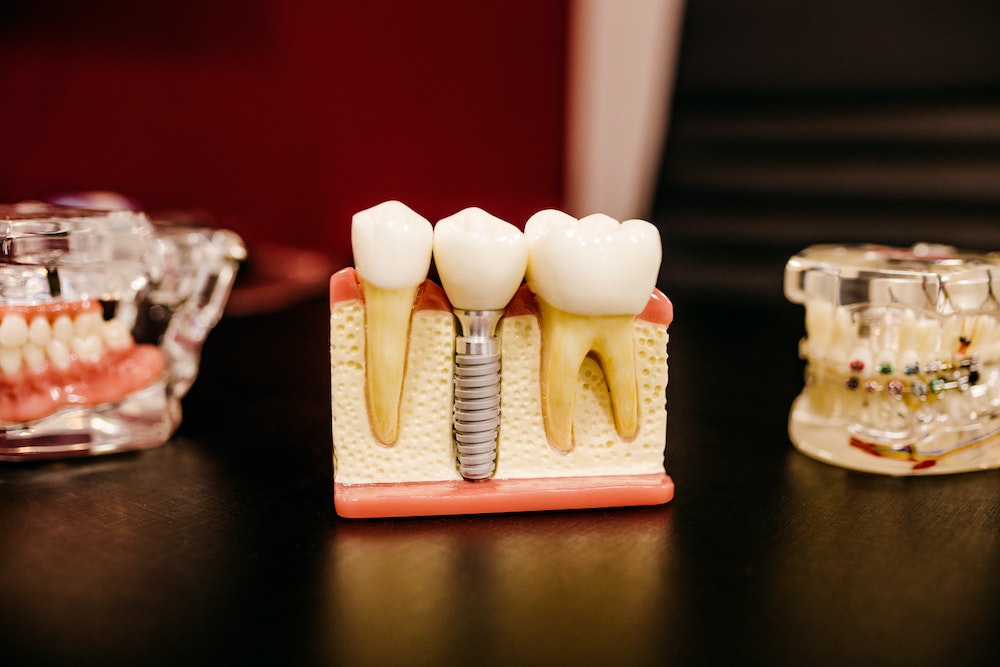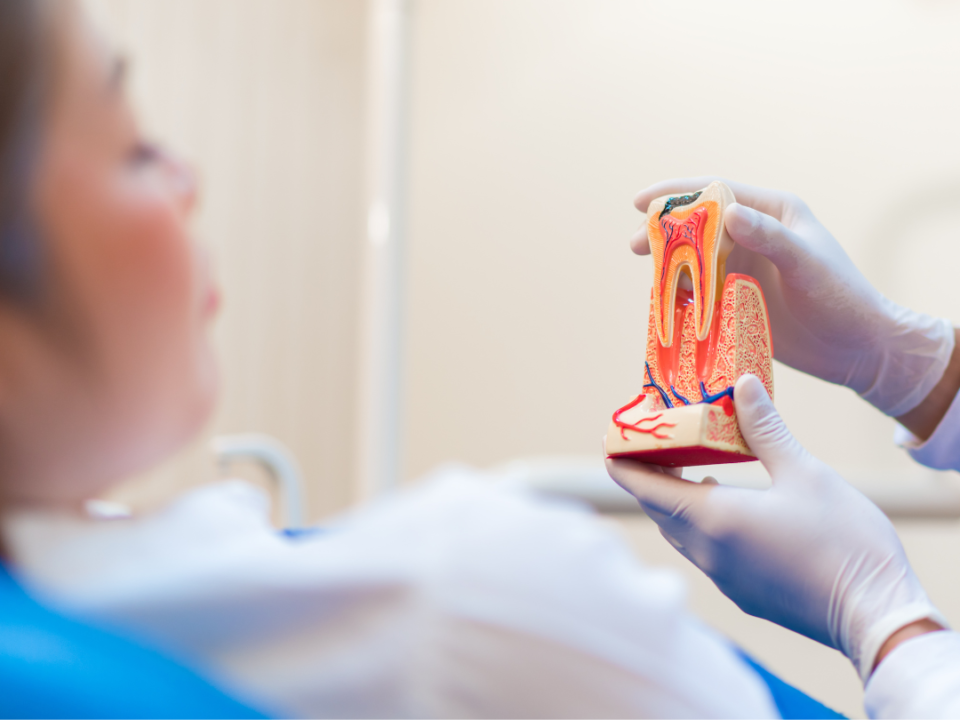
What Kind of Dentist Does Root Canals?
December 20, 2020
Endodontist vs Oral Surgeon. Our Complete Guide:
January 5, 2021
What Kind of Dentist Does Root Canals?
December 20, 2020
Endodontist vs Oral Surgeon. Our Complete Guide:
January 5, 2021Choosing a root canal over an extraction lets you keep your natural tooth. Although a routine procedure, you should know what to expect after a root canal to prepare yourself for the recovery period. We at Innovative Endodontics have prepared a guide for what will happen after you get a root canal treatment. Plus, you’ll find out what signs to watch out for that could indicate the need for additional care.
Before you have a root canal, read this guide to know what will happen after.
What Happens During a Root Canal?
During a root canal, the endodontist takes several precautions to prevent infection and pain. You will have a dental dam placed over your mouth to isolate your tooth and protect your airway. Plus, you will receive locally applied pain medication to numb the area. The numbness will wear off shortly after the procedure.
What to Expect After a Root Canal on the Day of the Procedure
Immediately after a root canal, your mouth may still feel numb. However, because the endodontist only uses a local numbing agent, you should be capable of driving and returning to work or school. However, you may feel some minor discomfort after this local anesthetic wears off.
Once the numbness wears off in a few hours, you can resume eating and drinking. However, be cautious about eating hard or extra chewy foods, such as hard candies or caramels. Generally, you want to avoid biting on the treated tooth immediately after a root canal until you have your dentist place a permanent crown on it. Call your dentist to schedule a visit for a crown placement as soon as possible. Until then, the treated tooth remains delicate. Do not neglect to brush and floss your teeth to prevent cavities as you heal from the root canal.
The Recovery Period from a Root Canal
After the day that you have a root canal, you may experience soreness in your treated tooth. Plus, biting down on the tooth will likely feel different or slightly uncomfortable. These symptoms are normal and should improve with each passing day. Continue your regular oral care regime, including brushing and flossing your teeth. You can also eat and drink normally after getting your crown placed.
Most discomfort will usually subside in a few days. Like Dr. Estes, endodontists recommend over-the-counter pain medication as a safe, non-addicting way to ease the discomfort you may feel.
Over time, your symptoms should begin to lessen. The last symptom to vanish tends to be the feeling of biting tenderness in the treated tooth. While this tooth may feel different for up to several weeks after the procedure, you should not experience severe pain or worsening pain in it. If you do, let your endodontist know.
Medications for Pain Relief
Dr. Estes finds that most patients only have mild to moderate discomfort that they can successfully treat with over-the-counter ibuprofen or acetaminophen.
During the first two days after your root canal, take 600 mg of ibuprofen (three 200 mg tablets) every six hours. Do not take more than 3,200 mg of ibuprofen in 24 hours, though. Even if you don’t feel pain, go ahead, and take the medication at the scheduled time. It is always better to get ahead of any potential soreness.
If ibuprofen alone does not do enough for the discomfort, you can add 500 mg of acetaminophen to each dose of ibuprofen. However, do not take more than 3,000 mg of acetaminophen in a day. In fact, taking both ibuprofen and acetaminophen together has been proven in studies to ease pain better than prescription narcotics.
To further improve the speed at which the medication takes effect, you may add two daily doses of caffeine. Each dose should be between 65 and 100 mg. These doses can be in the form of regular coffee, black or green tea, chocolate, or caffeine tablets. Be careful not to have caffeine too close to going to bed to avoid disrupting your sleep.
In some instances, patients may need to take a course of antibiotics after a root canal. If prescribed, take the entire medication course, even if you don’t feel any pain or have redness or swelling. By taking the full course of antibiotics, you keep your body from developing a tolerance to the medication.
Signs of Complications to Watch For
In very rare instances, complications may arise after root canal treatment. While some discomfort is normal, it should ease after a few days, not worsen. If you experience any of the following signs of complications, contact your endodontist at once:
- Fever
- Feeling generally ill (malaise)
- Bad taste in your mouth
- Swelling
- Uneven bite
- Increasing pain or pain that returns after it subsides
- Temporary filling falls out
- Itching, difficulty breathing, or hives (signs of allergies to medication)
Even long after you have a successful root canal, you could need future care due to the crown falling off or bacteria getting back into the tooth, causing a future infection. If you have healed from a root canal but begin to show symptoms such as pain, swelling, or sensitivity in the treated tooth, contact your endodontist.
Partner with Innovative Endodontics for Your Root Canal Treatment
If you live in Moncks Corner, SC, and need an endodontist to perform your root canal, trust Dr. Estes and the team at Innovative Endodontics. Phone our office or fill out the form on our site to contact us about a root canal treatment. We can also respond to calls if you have concerns or signs of complications after your procedure. You deserve to have the best care possible for your teeth, and our team at Innovative Endodontics wants to provide you with great care that makes you feel like part of our family.




